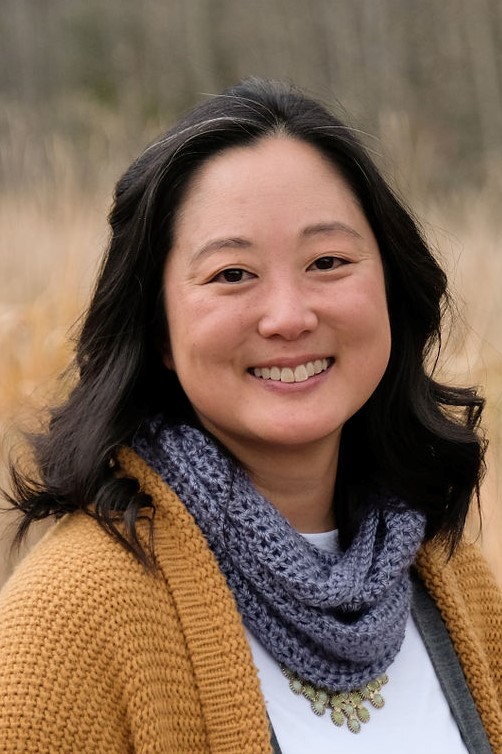Esther Kim believes instilling confidence is a key factor in helping people with communication disorders
8 September 2023

Esther Kim
Esther Kim is an associate professor and chair of the University of Alberta’s Faculty of Rehabilitation Medicine, Department of Communication Sciences and Disorders. A U of A alumna with a BSc in psychology, Kim earned her master’s degree in speech-language pathology and PhD in speech, language and hearing sciences at the University of Arizona.
Kim is a research affiliate of the Glenrose Rehabilitation Hospital. She is actively involved in aphasia awareness and advocacy in the community and a co-founder of the Alberta Aphasia Camp.
We contacted Kim to learn more about her and her research.
Please tell us about your research and how you got there.
Broadly, I work with adults who have neurogenic communication disorders as a result of damage to the brain. But I began my career working with people with dementia, working on interventions to improve the quality of life and communication for people facing a progressive condition.
When doing my undergrad, I heard Dr. Kathryn Bayles give a talk at the University of Alberta. She was one of the trailblazers in language, dementia and interventions for dementia. She worked on switching the focus to ‘There is hope for those with dementia,’ instead of ‘We shouldn’t bother because they’re going to get worse anyway.’
That's how I got interested in learning about the role of speech-language pathologists who work in geriatrics, so I decided to pursue a thesis with her while completing my master’s degree in speech-language pathology at the University of Arizona.
While doing my postdoctoral fellowship, I still wanted to work with people with neurogenic disorders. But I intentionally decided to switch my focus to aphasia, which is usually the result of a stroke. More specifically, I worked on understanding the interplay between language and cognition in those with aphasia — what’s underlying the language impairment and how we can treat it by addressing some of the cognitive factors involved.
My training at that time was impairment-focused, and when I first came to the U of A, I conducted intervention research, working with one individual at a time to get better so they could go out into the world and interact. But I found it was very time-consuming and narrow in focus.
In the last decade or so, my focus switched to thinking that you can open up a lot more doors for those with aphasia if you work on changing the people and environment around them. For example, we can train family members and care partners and do advocacy work with people in the community about what communication disorders are and how they can help. That lined up with starting the Alberta Aphasia Camp.
When we first started camp, I went into it thinking that camp was an activity that people do for fun, but it wasn't really impacting their language abilities. But that first experience made me realize that when you give people confidence, they're more willing to go out and try different things, and those things all interplay. It's not just practising; it's feeling confident enough to say, “Hey, I'm gonna go and actually order my coffee myself instead of having my spouse do it for me.”
Do you have any advice you like to give your trainees?
I work with students with broad interests in different areas, but the main thing is they have to find something they are really passionate about. We can help and support you, but ultimately it's up to you.
Sometimes students come into this area because they've had a personal connection with somebody affected by a stroke, and that's been their drive. That's great because it keeps that “why” in the forefront.
If you were to have a different profession, what would it be?
I used to play piano. I have my performer’s certificate and throughout my undergraduate degree, I was an accompanist for choirs and ballet schools. And I taught piano. When my piano teacher heard I was entering an undergraduate science program, they said, “What a shame.” But I think it’s worked out OK.